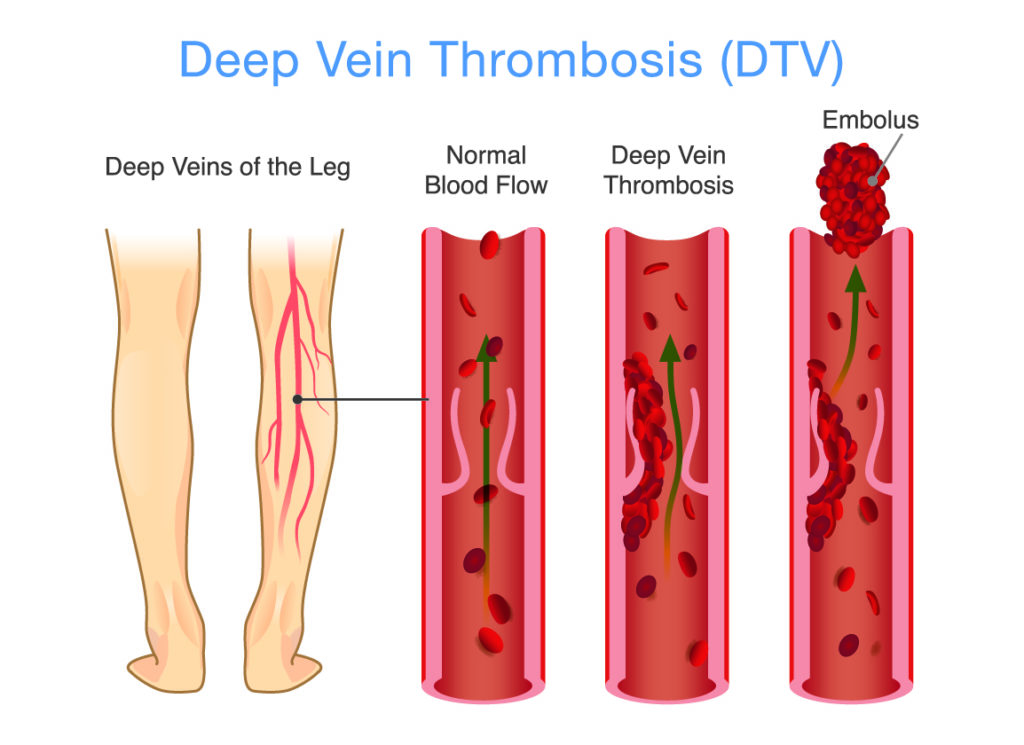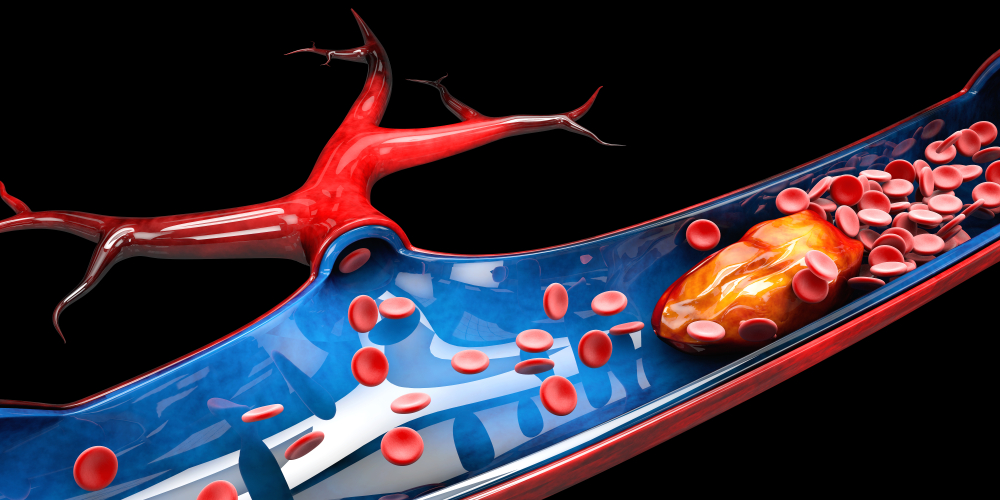DEEP VEIN THROMBOSIS TREATMENT IN LEXINGTON KENTUCKY
The Best Deep Vein Thrombosis Specialist in Lexington, KY.

WHAT IS DEEP VEIN THROMBOSIS?
Deep vein thrombosis (DVT) is a serious medical condition that’s caused by a blood clot forming in the deep leg veins.
Deep vein blood clots typically form in the thigh or lower leg area, but they can also develop in other areas of the body. Other names associated with this condition may include Thromboembolism, or Thrombophlebitis.
FREQUENTLY ASKED QUESTIONS
DEEP VEIN THROMBOSIS SYMPTOMS
Common symptoms of DVTs in the legs might include:
- Swelling or edema in the foot, ankle, or leg, usually on one side
- Cramping pain in the affected leg that usually begins in the calf area
- Severe, unexplained pain in the foot and ankle
- An area of skin that feels warmer than the skin on the surrounding areas
- The skin over the affected area turning pale or reddish or bluish color
- No symptoms at all
People with an upper extremity DVT, or a blood clot in the arm, may also not experience symptoms or side effects. If they do, common symptoms include:
- Neck pain
- Shoulder pain
- Swelling in the arm or hand
- Blue-tinted skin color
- Pain that moves from the arm to the forearm
- Weakness in the hand
WHAT CAUSES DEEP VEIN THROMBOSIS?
The main cause of deep vein thrombosis is when a blood clot is formed in the deep leg veins. Some risk factors for DVT include:
- Injury: Damage to a blood vessel’s wall can narrow or block blood flow. A blood clot may form as a result.
- Surgery: Blood vessels can be damaged during surgery, which can lead to the development of a blood clot. Bed rest with little to no movement after surgery may also increase the risk of developing a blood clot.
- Sitting or standing for a long period of time: Veins in the legs have to work harder to pump blood up toward the heart when a person remains in the same position for several hours at a time.
- Medications, like contraceptives, steroids, and certain anti-cancer drugs can increase the risk of DVT.
- Certain Conditions Like Congestive Heart Failure, Kidney disease, Pregnancy, Antiphospholipid syndrome, and Morbid Obesity can increase the risk for DVT.
- Some medications increase the chances of forming a blood clot.
- Intravenous drug use.
- Inherited Thrombophilia, Like Factor V Leiden mutation, Protein S, Protein C and antithrombin deficiency.
HOW TO DIAGNOSE DEEP VEIN THROMBOSIS?
Dr. Bacha is an expert at identifying and treating DVT. most patients visit our clinic after diagnosis was made in the emergency room or by their primary care physician. Ultrasound is one of the most common tests for DVT, and Dr. Bacha may use blood tests to evaluate the presence of disorder that increases the risk of blood clots formation. we don’t do routine cancer screening as those types of testing are usually done by your primary care physician, CT scan and MRI scans are rarely used to evaluate pelvic venous circulation and pelvic congestion syndrome.
DEEP VEIN THROMBOSIS TREATMENT OPTIONS
Medication
Anticoagulants or blood thinners are normally the first go-to treatment. For instance, this makes it harder for blood to clot. It also keeps existing clots as small as possible and decreases the chance that you’ll develop more clots.
Compression Stockings
Wearing compression stockings can prevent swelling and might lower your chance of developing clots. Compression stockings also help with leg pain as they improve blood circulation and reduce swelling.
Better Health Care is Our Mission
Deep vein thrombosis can cause severe risks to someone’s health. At Lexington Vein Institute in Lexington, Kentucky, Fadi Bacha, MD, diagnoses and treats clots with medication and compression gear to prevent them from breaking off, entering your lungs, and causing a severe pulmonary embolism.



